Q&A: Will there be an election in Northern Ireland?
- Published
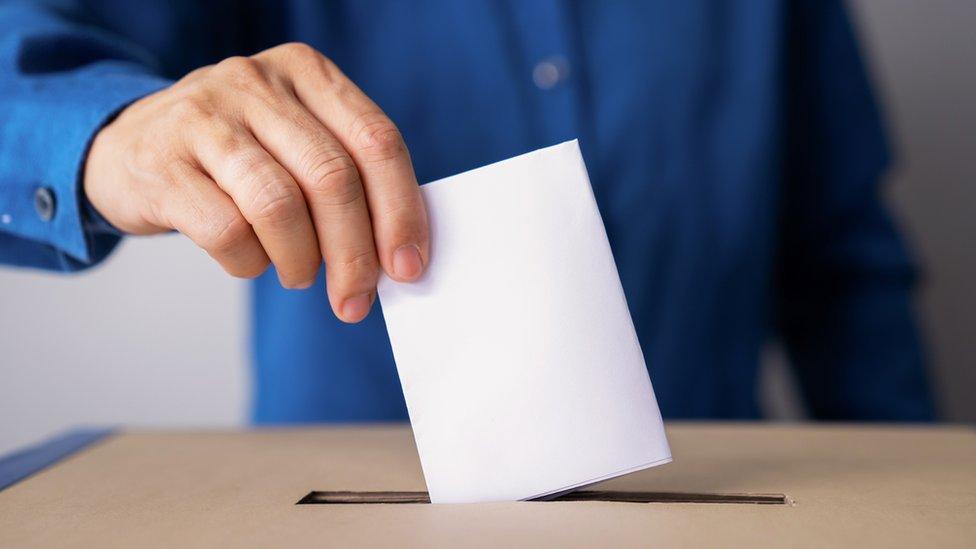
A second Northern Ireland Assembly election within the space of 12 months had appeared to be a highly a likely scenario.
With Stormont in crisis again and no sign of a resolution, Northern Ireland Secretary Chris Heaton-Harris had repeatedly said he would call a new poll.
The previous election had taken place in May and devolved government had not function in the months since then.
The legal deadline on 28 October for restoring power-sharing was missed, meaning another election was required by law.
But on Friday Mr Heaton-Harris announced that there would not be one in December.
BBC News NI has assessed how Northern Ireland politics has reached this point and what could happen next.
What happened in the 5 May election?
Sinn Féin became the first nationalist party to win the most seats in the Northern Ireland Assembly.
This entitled Michelle O'Neill, the party's vice-president, to take the first minister position.
The Democratic Unionist Party (DUP) came second but refused to nominate a deputy first minister.
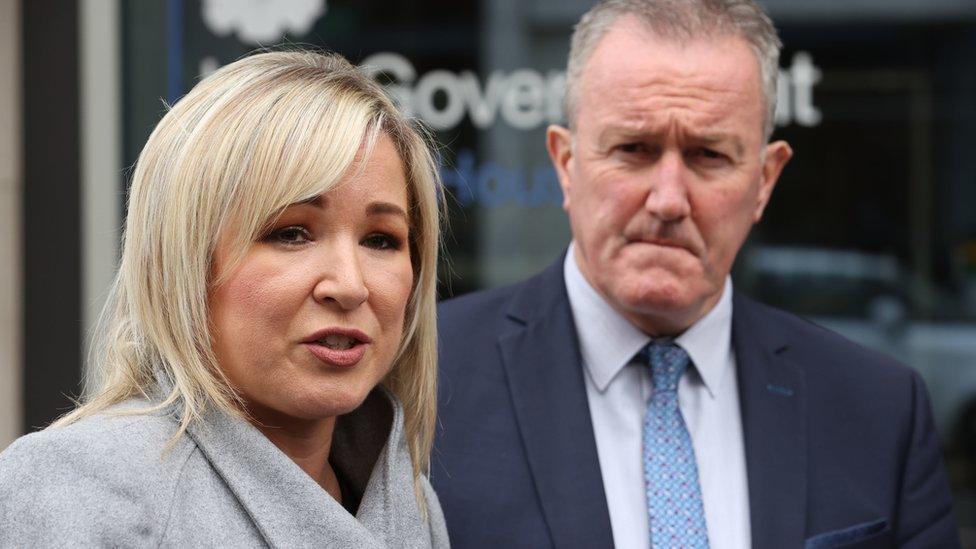
Michelle O'Neill was entitled to become Northern Ireland's first minister after the May election
Those roles form a joint office at the head of Northern Ireland's Executive, without whom the governing body cannot function.
By refusing to nominate, the DUP blocked the executive from forming.
It also blocked the appointment of a speaker, rendering the legislative assembly unable to meet, form committees or hold ministers to account in the assembly chamber.
What was the 28 October deadline?
This year the law was changed at Westminster to buy more time for the Northern Ireland Executive to be formed in the event of an impasse after an election.
This had been previously agreed in the New Decade New Approach, external document of 2020 and would allow ministers from a previous executive to continue in their roles for a period of 24 weeks after the assembly first meets following an election.
Previously that deadline had been 14 days following the first meeting of the assembly.
This extended period, it was stated, would "allow for greater continuity of decision-making".
However, without a first and deputy first minister, ministers cannot make decisions which are seen to be cross-cutting, or needing the support of the executive as a whole.
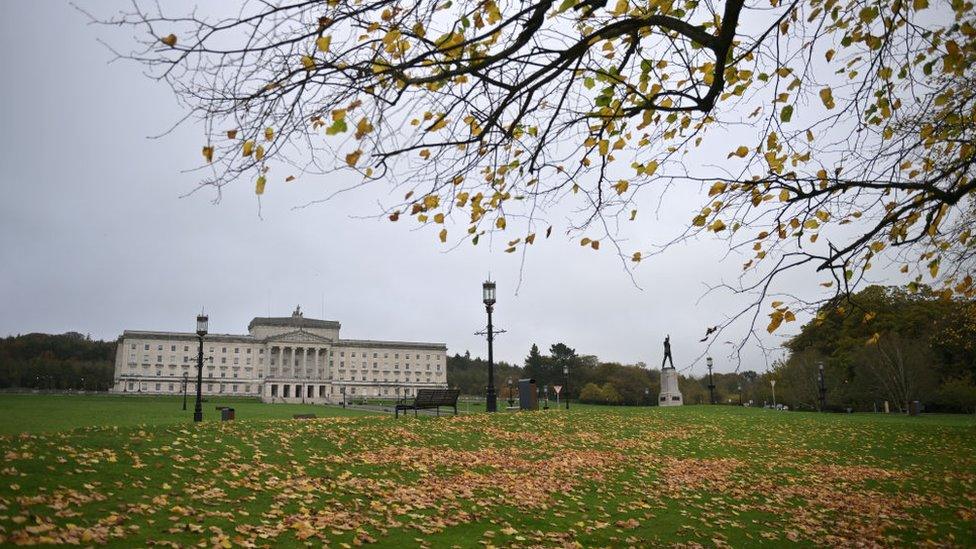
This year the law was changed at Westminster to buy more time for the executive to be formed in the event of an impasse after an election
A key example of that is the budget, which has not been agreed.
It is after this 24-week period that an election must be called if the executive has not reconvened.
After May's election, when the 28 October date was reached, the way the law has been formulated means there was no way to appoint a first minister and deputy first minister.
That means there is no option left other than an election, unless the UK government changed the law, which it has indicated it has no intention of doing.
What is the DUP protest about?
The DUP has protested against the Northern Ireland Protocol, a part of the UK-EU Brexit deal which keeps Northern Ireland aligned with some EU trade rules.
It was designed to ensure goods could move freely across the Irish land border, from the UK into an EU member state, the Republic of Ireland.
However, in turn, the protocol imposed some new checks on goods moving between Great Britain and Northern Ireland.
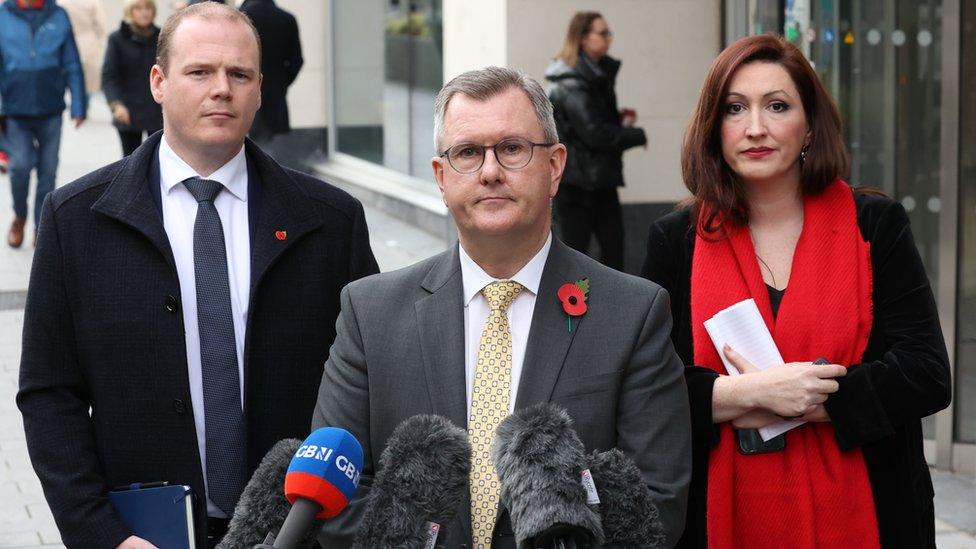
The DUP collapsed the executive in February and has blocked it from forming since May's assembly election
The DUP, which had backed Brexit, has argued the protocol has undermined Northern Ireland's position within the UK.
As a result, in February 2022, the DUP's Paul Givan resigned as first minister, collapsing the executive.
Since May's election the party has continued its protest.
Has there been any movement on the protocol?
Talks have been taking place between the UK and the EU about the outworkings of the protocol, with both sides expressing hope that a negotiated solution could be found to minimise the impact on trade to Northern Ireland.
None of the Northern Ireland parties are directly involved in the talks and there has been no indication there will be an imminent movement on the issue.
Alongside the negotiations the UK government is proceeding with a bill in Parliament, which would override many aspects of the protocol.
The EU has taken legal action against the UK for not enforcing the rules.
Is an election inevitable and when would it be?
Mr Heaton-Harris had repeatedly said he would call an election if an executive was not formed by 00:01 on 28 October.
With the parties having not formed an executive by that date, the rules state the Northern Ireland secretary must call a new election "as soon as is practicable".
That did not mean he had to call an election on 28 October, contrary to what he had said.
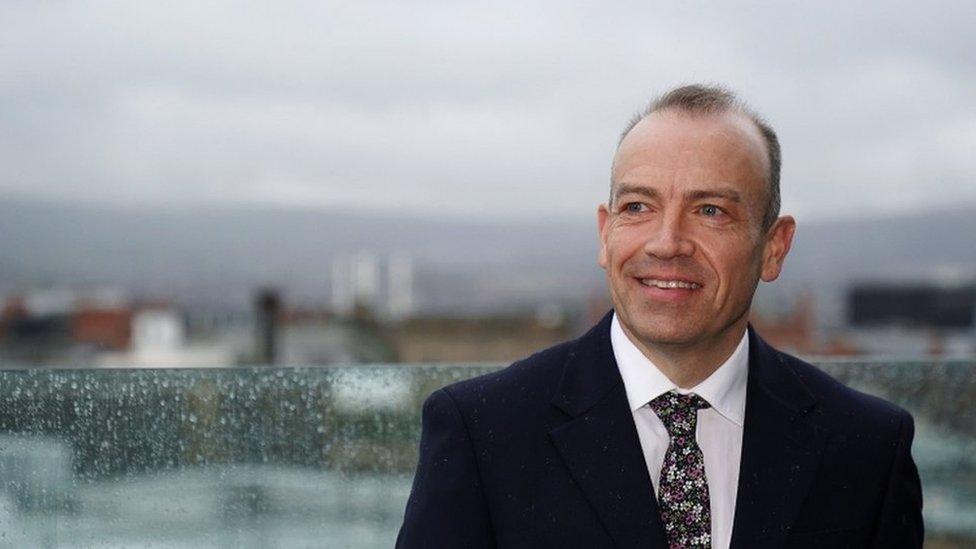
Chris Heaton-Harris had committed to calling an election if the executive was not established
The rules do stipulate, however, that the election must be held within 12 weeks, which would mean the second assembly election in the space of 12 months.
Previous deadlines in Northern Ireland have been adjusted by emergency legislation at Westminster.
BBC News NI understands that the chief electoral officer wrote to parties to suggest 15 December as a likely date for a poll.
But on 4 November Mr Heaton-Harris confirmed that an election would not be held in December.
That still leaves the door open for one to take place in the new year.
The latest it could take place within the 12-week period set by Westminster is 19 January but that would require a campaign over Christmas.
Instead Mr Heaton-Harris may now have to delay the new deadline by passing legislation at Westminster.
He has already faced criticism from some political parties for rowing back from his initial pledge.
How can an election be averted?
There were a number of scenarios in which an election could have been prevented.
One option was for the DUP to re-establish the executive by nominating a deputy first minister before Friday's deadline.
However, that has not happened with the DUP maintaining their stance in protest of the Northern Ireland Protocol.
Although talks continue between the UK and the EU, the DUP has so far said its demands had not been satisfied.
The party has also supported the government's legislation to override parts of the protocol.
The other option open to the government is the passage of emergency legislation which would scrap or delay the deadline.
With more time there could also be the potential for developments in the protocol talks and the potential for the DUP to return to the executive table.

Read more: Stormont crisis explained

Will the new prime minister have a say?
Rishi Sunak may have his own ideas on Northern Ireland policy and the protocol.
He reappointed Mr Heaton-Harris to the role of Northern Ireland secretary after succeeding Liz Truss as prime minister.
The question is whether Mr Sunak, facing a busy in-tray in his first few weeks in 10 Downing Street, wishes to press ahead with an election or delay it until another day.
What have the other parties said?
Sinn Féin, the Alliance Party, the Ulster Unionist Party (UUP) and the Social Democratic and Labour Party (SDLP) have all urged the DUP to return to the executive table.
They have cited the cost of living crisis and healthcare pressures as reasons why the institutions should return in full.
Since the election in May, ministers have been limited in their powers and confined within their budgets.
After 28 October deadline it is up to civil servants to run Stormont's departments.
Sinn Féin had previously said another election would not be helpful.
But it has since criticised Mr Heaton-Harris for not calling a poll after the deadline to restore an executive passed, saying he had a duty to adhere to the law.
The other parties have expressed relief than an election will not take place this year, saying it would have been a waste of public money.
The view from the Irish government is that another election would not be a good thing for Northern Ireland.

Are you a Northern Ireland business owner being impacted by the political limbo? How would an election affect you? Share your experiences by emailing haveyoursay@bbc.co.uk, external
Please include a contact number if you are willing to speak to a BBC journalist. You can also get in touch in the following ways:
WhatsApp: +44 7756 165803
Tweet: @BBC_HaveYourSay, external
Please read our terms & conditions and privacy policy
If you are reading this page and can't see the form you will need to visit the mobile version of the BBC website to submit your question or comment or you can email us at HaveYourSay@bbc.co.uk, external. Please include your name, age and location with any submission.
- Published8 May 2022
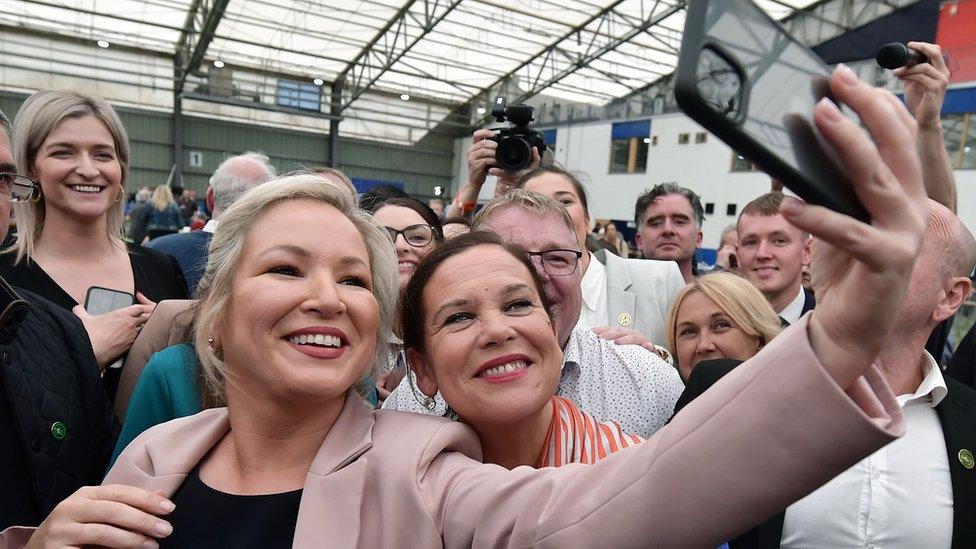
- Published20 October 2022

- Published11 October 2022
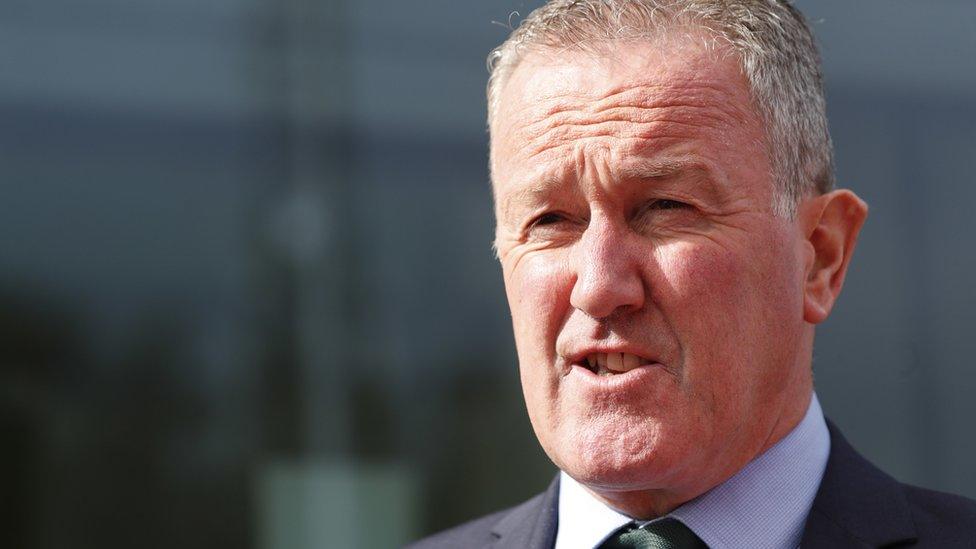
- Published2 February 2024
